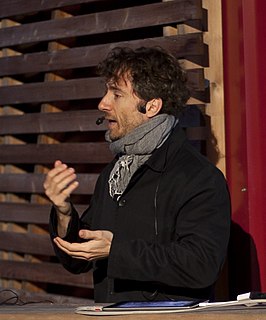A Quote by Tony Buzan
True negotiation takes place when each side respects the other, and their point of view, and enters into the discussion positively. If you are determined that your solution, and your particular solution only, is the correct one - to be imposed on the other side if necessary - that is not negotiation; it is dictatorship
Related Quotes
The macro of any negotiation is that the only time you can cut a deal is when both sides are hurting. If either side is - is well and feeling happy, you can't get a deal. Then they go for victory. You need - if they're willing to settle for things the other side can live with, it's because they're hurting a little bit.
Each side has legitimate aspirations - and that's part of what makes peace so hard. And the deadlock will only be broken when each side learns to stand in the other's shoes; each side can see the world through the other's eyes. That's what we should be encouraging. That's what we should be promoting.
When we come to the table, we shouldn't negotiate right away. We should spend time walking together, eating together, making acquaintance, telling each other about our own suffering, without blame or condemnation. It takes maybe one, two, three weeks to do that. And if communication and understanding are possible, negotiation will be easier. So if I am to organize a peace negotiation, I will organize it in that way.
Prepare for every negotiation... 1) Focus on Outcomes. What is it that you want to walk away with? Being as specific as possible also increases the likelihood of negotiation success. 2) Support your desired outcome with data that points to its reasonableness. 3) Writing down your key points in advance - and practicing them - enables you to stay focused on what's most important and avoid going off on tangents. 4) Err on the side of asking for more, rather than less [of what you really want]. 5) Be willing to walk away.
Bush and bin Laden are really on the same side: the side of faith and violence against the side of reason and discussion. Both have implacable faith that they are right and the other is evil. Each believes that when he dies he is going to heaven. Each believes that if he could kill the other, his path to paradise in the next world would be even swifter. The delusional "next world" is welcome to both of them. This world would be a much better place without either of them.

































